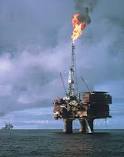Coca - Cola’s classic Christmas advert always reminds me that the festive season is fast approaching, its less than 2 months away. Christmas is a very important time young children along with retail based firms as they over 40% of their annual profits in the 3 month period before and after the 25th December. Many people are optimistic that the increased spending and festive cheer would be the perfect remedy to get the sick UK economy back into action. The chief executive of Next, Lord Wolfson said "I suspect it [Christmas] will be much the same as the rest of the year. I cannot see why the consumer economy should be any different.” Like Lord Wolfson I am sceptical of Christmas’ possible effects on the UK economy as this year is a very unusual one, therefore shouldn't be compared directly with the winter success in previous years.
 A research from Ebay has showed that the UK is losing up to £120 million in mobile phone revenue due to the lack of Universal 4g services. Money is being lost as many more consumers are using the web to shop for Christmas gifts via Amazon and Play.com, it is expected that 55% of consumers will use their mobile phones to buy much needed gifts for their love ones. However these consumers are currently being restricted by slow connection speeds. The main barriers are network reliability and payments timing out, the 4g coverage is built specifically to process internet more efficiently and quickly. Even though the UK acted very fasted to capitalise on 3g coverage, it has been slow to answer the calls of consumers demanding the more superior 4g coverage, which is expected to become widespread next year autumn, despite the fact that forty countries such as India and the USA are already benefiting from the new technology already. Clare Gilmartin, the vice president of eBay said “Mobile devices have become virtual stores in our pockets, giving us the ability to shop anytime, anywhere. But for consumers, it’s critical that the experience is quick, seamless and simple. While we welcomed the move by Ofcom to bring the 4G spectrum auction forward to early 2013 there’s no doubt, as this research shows that for the UK economy the cost of another Christmas without universal 4G is huge.”
A research from Ebay has showed that the UK is losing up to £120 million in mobile phone revenue due to the lack of Universal 4g services. Money is being lost as many more consumers are using the web to shop for Christmas gifts via Amazon and Play.com, it is expected that 55% of consumers will use their mobile phones to buy much needed gifts for their love ones. However these consumers are currently being restricted by slow connection speeds. The main barriers are network reliability and payments timing out, the 4g coverage is built specifically to process internet more efficiently and quickly. Even though the UK acted very fasted to capitalise on 3g coverage, it has been slow to answer the calls of consumers demanding the more superior 4g coverage, which is expected to become widespread next year autumn, despite the fact that forty countries such as India and the USA are already benefiting from the new technology already. Clare Gilmartin, the vice president of eBay said “Mobile devices have become virtual stores in our pockets, giving us the ability to shop anytime, anywhere. But for consumers, it’s critical that the experience is quick, seamless and simple. While we welcomed the move by Ofcom to bring the 4G spectrum auction forward to early 2013 there’s no doubt, as this research shows that for the UK economy the cost of another Christmas without universal 4G is huge.”
In other news, a credible think tank has said that the Chancellor of the Exchequer may have to reduce public spending up untill 2018, when the new second form will eventually be leaving CH. The Institute for Fiscal Studies suggests that George Osborne has to make an extra £11 billion in spending, if he wants to continue reduced the UK’s £1 trillion deficit. A Treasury spokesperson said: "Action taken by the government has cut the deficit by a quarter, whilst over a million new jobs have been created in the private sector, inflation is down, and the economy is healing. Britain still faces economic challenges at home and abroad but the government is taking the tough decisions needed to deal with our debts and equip our economy for the global race.
Despite having the highest consumer confidence in 15 months, sales have been slowly decreasing. The UK retail sector was one of the most effected after the 2007 crash, as consumers are unwilling to spend too much due to job uncertainty caused by the recent alarming unemployment figures of 2.5 million. Henry Enos, a consumer expert said ”Retailers will continue to face the challenges of changing shopping habits brought about by the economic climate, but also increasing use of the internet as both a shopping and price comparison resource. The consumer is more educated due to the media society we live in”.
.jpg) We’re coming to our sixth competitive Christmas is an economic downturn but this time the UK has been battling against the heavy Government cuts and high unemployment. I don’t think retail firms should expect huge demand for their products. Only time will tell, if Santa Claus can drag us of out of our deep hole along with our European neighbours.
We’re coming to our sixth competitive Christmas is an economic downturn but this time the UK has been battling against the heavy Government cuts and high unemployment. I don’t think retail firms should expect huge demand for their products. Only time will tell, if Santa Claus can drag us of out of our deep hole along with our European neighbours.
Coca-Cola Christmas advert: http://www.youtube.com/watch?v=ogetBqMgau0

.jpg)

.jpg)



.jpg)
.jpg)
